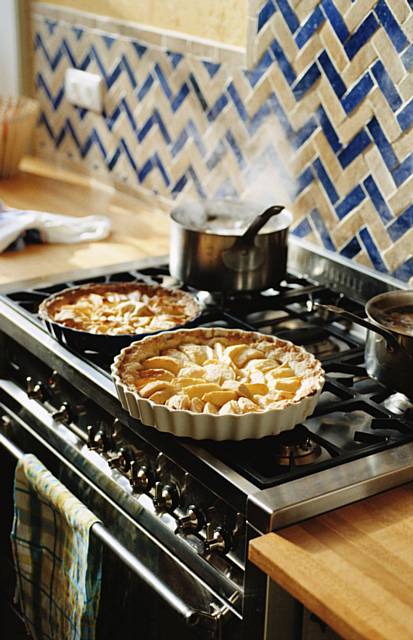'Are you ready to cook safely?'
Date published: 12 June 2013

Are you ready to cook safely?
Public Health England is supporting the Food Standards Agency’s (FSA) Food Safety Week that runs from 10-16 June. This years theme is: 'Are you ready to cook safely?'
In a recent survey, the FSA found that 80% of those questioned carried out one or more food behaviours that put them at risk of food poisioning.
Dr Ken Lamden, the Public Health England regional lead for gastrointestinal diseases said: “Food poisoning is a miserable experience and so easily avoided. People should not worry unduly about food poisoning, as there are some simple steps that can be taken to avoid getting ill. Just storing, handling and cooking food properly will minimise the risk.
“Avoiding cross-contamination is also extremely important, that is preventing bacteria from spreading between foods and from contaminated surfaces or utensils. Make sure you store raw meat covered and at the bottom of the fridge, below and away from ready-to-eat food. Never use the same chopping board for raw meat and ready-to-eat foods without washing the board and knife thoroughly first.
“Clean hands in the kitchen are also vital in the fight against food poisoning; while food must also be kept at the right temperature. Food that needs to be chilled should be kept in the fridge, and check that it’s running at the right temperature - between 0°C and 5°C. Storage above this range can allow bacteria to grow or harmful toxins to form. Also, on a picnic, don’t take food out of the fridge until the last minute and use a cool bag to keep it chilled until ready to eat.
“Some types of food poisoning can also be spread from person-to-person through contact with people who have the infection. This is why it’s extremely important for people to wash their hands thoroughly after using the toilet and/or before handling food.”
The FSA advice is:
Cleaning
• Hands are one of the main ways in which germs are spread. Wash hands thoroughly with soap and warm water before cooking and after touching the bin, going to the toilet, handling pets or handling raw food.
• Wash or change dish cloths, tea towels, sponges and oven gloves regularly and let them dry before you use them again. Dirty, damp cloths are the perfect place for bacteria to breed.
Cross contamination
- Cross contamination occurs when harmful germs are spread between food, surfaces and equipment. Help to prevent this by removing clutter that you don’t need and washing worktops before and after cooking.
- Always use a chopping board. Wash the board and other utensils in hot, soapy water when you’ve finished using them and in between preparing raw foods (meat, poultry, eggs, fish and raw vegetables) and ready-to-eat food. Better still, use a separate chopping board for each.
- Make sure your fridge is set below 5°C, using a fridge thermometer to check. This is to prevent harmful germs from growing and multiplying.
- Don’t overfill your fridge. This allows air to circulate and maintains the set temperature.
- Store raw meat and poultry at the bottom of the fridge and properly wrap or cover it to avoid raw juices contaminating other foods.
- Cook food thoroughly until it is steaming hot in the middle. This will kill any harmful bacteria that may be present.
- ‘Use by’ dates are found on perishable products, such as dairy, meat and fish, and are based on scientific testing to determine how long these foods will stay safe. After that date, food could be unsafe to eat even if it is stored correctly and looks and smells fine.
- ‘Best before’ dates are used on foods that have a longer shelf life and tell us how long the food will be at its best. After that date it is normally safe to eat, but its flavour and texture might have deteriorated.
http://www.food.gov.uk/news-updates/campaigns/kitchen-check/kitchen-check1/tool
Do you have a story for us?
Let us know by emailing news@rochdaleonline.co.uk
All contact will be treated in confidence.
Most Viewed News Stories
- 1Royton haulage firm fined after Rochdale dad went to work and didn’t come home
- 2Six men arrested in Rochdale child exploitation investigation
- 3Newhey's Char Steakhouse and Bank Chamber close with immediate effect
- 4Two men arrested after police chase ends up in Middleton river
- 5Obituary: Jean Ashworth
To contact the Rochdale Online news desk, email news@rochdaleonline.co.uk or visit our news submission page.
To get the latest news on your desktop or mobile, follow Rochdale Online on Twitter and Facebook.


